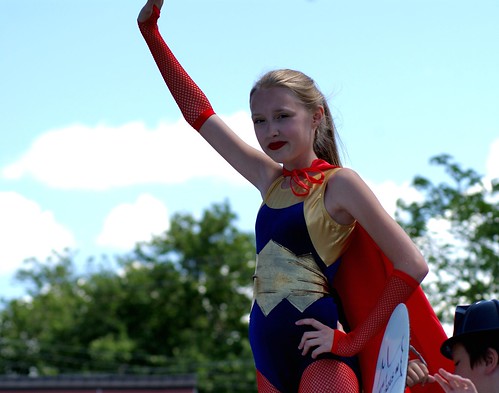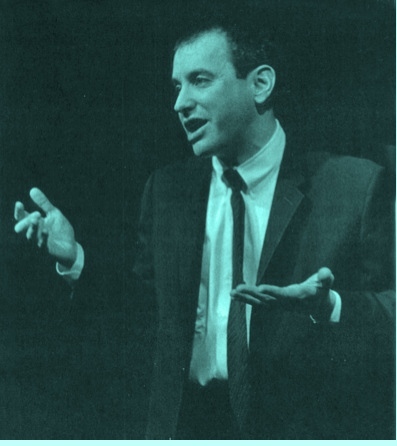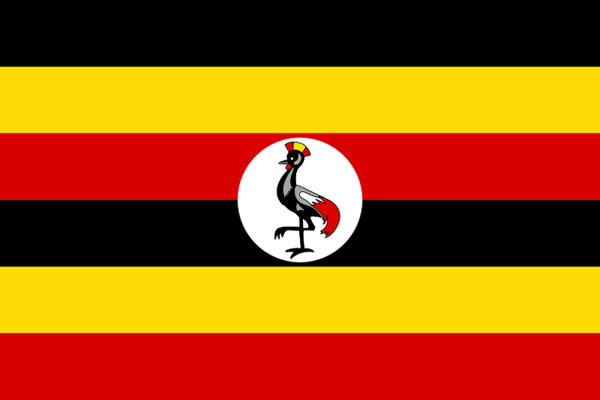LGBT PRIDE: Colby Melvin & Brandon Brown Engagement
LGBT PRIDE: Colby Melvin & Brandon Brown Engagement.
www.youtube.com/watch?v=JZzrDo-w1eg&feature=youtube_gdata
Daily Archives: June 13, 2014
Pride 30

AIDS Nostalgia and 1991's <i>Someone Else From Queens Is Queer</i>
AIDS Nostalgia and 1991's <i>Someone Else From Queens Is Queer</i>
I have steered my small craft of attention carefully away from most of the fire-engine-red buoys of so-called “AIDS nostalgia” that have appeared in the last few years and reveal, like freshly marked symbols on the newest, most accurate maps of busy waterways, significant shifts in depth and current.
Most recently I nodded at friends and clients, gay men all, who described their visceral responses to Ryan Murphy’s HBO adaptation of Larry Kramer’s The Normal Heart. I didn’t watch it, as I had also allowed myself to drift past that drama’s Broadway revival without stopping by as though it were a once-familiar port of call. I similarly avoided several other cultural markers of our acknowledging the AIDS crisis as a landmark that now appears far behind us, upriver, as we slowly ease toward the further reaches of middle age and the inevitable delta that lies ahead.

Detail, Office of Coast Survey Nautical Chart, National Oceanic and Atmospheric Administration, U.S. Department of Commerce
Frankly, it’s just too painful for me. Coming to New York City in 1989 after college, I narrowly missed being part of the generation of gay men and their loyal, loving female friends who found themselves squarely in the spinning eye of that shockingly sudden and destructive squall that decimated entire friendship networks. But “I was there,” as Sondheim says.
At the time, it must have seemed to them like an endless antediluvian affliction as, Noah-like, they looked up at the sky and thought, “More? Really?” Yet now, in hindsight, even with the mostly private anxieties and warnings of seroconversion still a prominent internal map of our protogay intimacies, the high-water marks of those years telescope away from us as we revisit these ships’ logs of our journeys from the those days.
I’m sorry to make so much of the nautical metaphors, but they’re poignant for me, revealing some core, atavistic tenderness within my heart, like those speeches of Shakespearean shipwrecks that wreak their dislocating havoc just before the curtain rises and are already presented in poetic images by the drenched, dazed, and — hello — marooned survivors in Act One, Scene One.
But I’ve marked the passing and the remaining of my own private AIDS crisis in quieter, more domestic and less publicly shared ways. It’s a jealous, covetous sort of mourning ritual: “Mine. Mine.“
For example, I retain, like a blurring tattoo under my clothing, the final image of The Destiny of Me, Mr. Kramer’s followup to the shocking cri de coeur of The Normal Heart: that of actor John Cameron Mitchell’s stricken young face as his character catches a glimpse of his future as a gay man who will find himself swept up in something far, far beyond his reckoning.
Of course, the cauterizing scars of the wickedest, white-hot edges of the zeitgeist are experienced by us all in intense solipsism. Somehow, by taking a pass on the collective enactment of our remembrances, I am attempting to defy and disgrace the process of coming to terms. I don’t want to heal from these wounds. I demand that they remain fresh and flowing. But, of course, they inevitably grow less-vivid, cooler, both the memories and my righteous rage, for better and for worse.
Still, I hold rather desperately — and I mean this — to my personal totems like — sorry — a sailor who lashes himself to the mast during a tempest and finds himself ridiculously still strapped there and stuck the sunny morning after.
And I honestly don’t know the extent to which this protectively intended bondage to the past continues as my own self-scarring replay of old trauma or in venal, desperate or perhaps transcending servitude to wraiths dead or alive.
Of course, it would be nice to spy an albatross like in Coleridge’s The Rime of the Ancient Mariner, that symbol of the spirit’s liberating ability to survive our wreckage and soar through the sky or drop onto solid terra firma, even if only in the form of a perch on an old pylon of the rotting West Side piers on the Hudson.
But, for me, without question, it’s in written works of creative expression — those artifacts of a community’s presence and processionals as real as a “rent past-due” slip under the door — that I find my solace and my North Star, helping me steer a course forward. In terms of AIDS and among living authors, that’s works like Mark Doty’s collection of poems My Alexandria; or the still-quickening poems of friend-poets like Steven Cordova, David Groff, and Scott Hightower; or indispensable essays like Samuel R. Delaney’s razor-sharp and unapologetically carnal “Times Square Red, Times Square Blue”; or Christopher Bram’s tender and carefully wise take on the AIDS generation’s gay-male belles lettres in his enlivening Eminent Outlaws: The Gay Writers Who Changed America.
As Bram astutely reminds us, the theater is a particularly vital and quickly responsive venue for depictions of recent and local autos de fé and high-wire escape acts. Tony Kushner’s Angels in America echoes with Kramer’s historical dramas, and each of those with other works, like Paul Rudnick’s generously romantic Jeffrey and that miracle of theatrical invention and heart, Jeff Weiss’ Hot Keys. I include in my personal mememto mori of those times another particularly special performance text.
I never saw a performance of Someone Else From Queens Is Queer, the 1991 solo show of AIDS activist and health policy enfant terrible Richard Elovich, but know it from the text published in the journal Theatre in the summer 1993 issue, which I’ve always kept a copy of and read every few years, like I do with To Kill a Mockingbird.
I worked with Elovich at Gay Men’s Health Crisis in the mid-’90s, when he was one of the sui generis geniuses of AIDS prevention and the integration of life-saving harm reduction models to HIV. (He now holds a Ph.D. in medical sociology from Columbia University.) Back in the day I was intimidated and thrilled by his kinetic passion and sense of mission.

Photo of Richard Elovich in Someone Else From Queens Is Queer by Dona McAdams, courtesy of Theatre
You can feel that wonderful life force just reading Someone Else From Queens Is Queer, an intellectually giddy mash note to the ACT-UP boys and treatment activists in leather jackets who sprang fully formed as if from the head of a Tom of Finland-drawn Zeus in response to the torpor of government response to the AIDS Crisis.
Gregg Bordowitz (to whom Someone Else From Queens Is Queer is dedicated), Charles Brack, Javid Syed, James Learned, Peter Staley, Spencer Cox, John Hatchett, Mark Harrington, Stephen Gendin, David Barr, Dave Nimmons, Gregg Gonsalves, Derek Hodel, Derek Link, Michael T. Isbell, and Thomas K. Duane (and those indefatigable and poised women who labored in the same trenches, like Denise Drayton, Petra Barrios, Laura Morrison, Michelle Lopez, Kim Watson, Barbara Hughes, Barbara Warren, Christine C. Quinn, Karin Timour, and Joy Episalla) — amongst many, many others, these are my personal local heroes and heroines..
These were the mostly lily-white, mostly male, mostly suburban-raised and staunchly middle- and upper-middle-class sissy superstars of righteous rage, drunk with grief and power, bitch-slapping Reagan-era bureaucrats with their audacity and desperation, and Elovich’s text sings soaring and cracked elegiac arias for them from some East 10th Street tenement window’s fire escape at 3 a.m.
Here’s my favorite part, which starts out comparing television sitcom families The Munsters and The Addams Family as if each exemplified a different class-based ethos of Jewish-immigrant assimilation in America, in a breathless, sexy, and silly argot instantly recognizable to those of us who shared those supercharged, heady days, and which formed some of the formative ideological and intellectual underpinnings of AIDS activism:
I open the door and we go in. We sit on the couch. I put my hand- “Now on the other hand you have the Munsters. Herman and Lily Munster come from an entirely different class. They are like us, from Queens. Herman Munster is different from Gomez Addams. Herman is constantly seeking to assimilate. The happiest I have ever seen Herman is in the episode where he has won, in a TV contest, a month’s free membership in the Mockingbird Heights Country Club! So he and Lily go to this country club and totally fuck up! Misunderstand everything!” -Gordie’s taking his clothes off.- “See, no matter what Herman Munster does, no matter how much he tries to sound like ‘Father Knows Best,’ he has that nose! That face! He always looks Frankenstein!” –I run for the pillows and the sheets.- “The difference is Gomez Addams can pass, and that’s all the more interesting because he doesn’t know he’s passing.” -1 turn out the light.-“The Jewish dream vision of aristocracy:” -We get into bed.-“Not ever remembering a time when one wasn’t aristocracy!”We’re both looking up at the ceiling. I’m wondering if he’s ever gonna stop! I go to put my hand.- “So later in the same show, Herman is deeply invested in this contest he has entered-he goes to the TV.” -1 take my hand back.- “Now this is a great moment of television: T V is watching TV. Herman goes to the TV and they’re announcing the contest winners. ‘The first prize is yadda yadda,’ and it doesn’t go to Herman. ‘The second prize is yadda yadda,’ and it doesn’t go to Herman. After he doesn’t get the third prize, Herman starts yelling back at the TV: ‘Why dontja tell everybody that he’s the nephew of the station manager-it’s all a fix, it’s all been fixed, fixed fixed fixed fixed fixed fixed fixed fixed fixed!’ Herman starts pounding on the TV, screaming: ‘It’s a sham! It’s a sham!’ “So here’s this image of a Jewishman on a television show, Frankenstein, screaming back at the TV doing this yiddle yiddle yimmy dance around it, wrecking it, because it doesn’t recognize him!” -1 pull Gordie’s legs out from underneath him! He falls onto his back and I kiss him for the first time. Once he stopped talking he turned into an incredible lover.
Elovich presents such a highly personal, idiosyncratic and lushly romantic portrayal of these relationships in a gloriously proud Jewish cultural frame, enacting the rolling, off-tempo lilt of that terrifying era’s special cadences, plunked out of tragic keys as it is for each generation and uniting mind and heart, loss and birth. And here it all is in microcosm, unmediated by metaphor, near the piece’s conclusion:
When Gordie’s speeches were gone, when he was having trouble just getting out what he wanted to tell the doctor, and all that was left were his dark eyes darting back and forth he kept trying to start something but he’d lose track. That’s what made him angry all the time. Losing track. He was angry with me, he was furious with me, for seeing him like that.
Twenty-three years ago this summer, those words emanating from the mouth of one of us, one of our tribe — amongst whom I worked and screwed and bitched and had my heart broken — filled me then with an aching love, and it still does.
Christopher Murray, LCSW-R, is a psychotherapist in private practice in Manhattan and can be reached via christophermurray.org.
US Southern Baptist Convention passes motion condemning transgender people
US Southern Baptist Convention passes motion condemning transgender people
The largest Protestant church in the United States has passed a transphobic motion condemning people who undergo procedures to become the gender they feel is correct for them as it elects an anti-gay author its new president
andrewp
Homofobia y Rechazo Hacia la Comunicad LGBT
Homofobia y Rechazo Hacia la Comunicad LGBT
Proyecto de Investigacion.
Sharing the Stories of LGBT Youth: Starfire, 18, From Las Vegas (PHOTO)
Sharing the Stories of LGBT Youth: Starfire, 18, From Las Vegas (PHOTO)
We Are the Youth is a photographic journalism project chronicling the individual stories of lesbian, gay, bisexual, transgender and queer (LGBTQ) youth in the United States. Through photographic portraits and “as told to” interviews in the participants’ own voices, We Are the Youth captures the incredible diversity and uniqueness among the LGBTQ youth population.
Below is the story of Starfire, which is featured in the upcoming book We Are the Youth.
* * * * *
By Starfire, as told to Diana Scholl
I see love in so many different kinds of ways. I would date anyone who catches my interest, anyone who can keep up in a conversation. I’ve dated lots of people. You’ve got to go out and experience the world. I don’t see a reason not to if it’s not going to interfere with my actual life, like getting schoolwork done and getting my future together.
My partner and I have been together a year and three months. He identifies as straight, and it doesn’t bother him that I identify as queer, genderqueer, and polyamorous.
My preferred pronouns are “ze,” “zem,” and “zer.” It’s not so much that I’m gender-neutral. I mix up how I dress all the time. I just put together clothes. I don’t want to put myself in a box, like I have to wear boys’ clothes or I have to wear girls’ clothes. I’m also super-fabulous.
My family knows I like a lot of different people. I live with them, but they’re not in that part of my life. It makes it easier. I’d have to explain it to them, then I’d have to explain it and explain it and explain it again.
I have two older brothers, three stepsisters, and a stepbrother. I had a younger brother who passed away. That happened in 2008. He was 12, and I was 13. It came out of nowhere and hit a lot of people really hard. It was one of those things that made me who I am. I used to be really antisocial. That’s when I started going out and making friends and raving and wanting to be away from my family.
I was raving for two or three years. It was something to do in Vegas. It’s a 24-hour town, and there’s not a lot to do if you’re under 21. Raving was something to do, and people to be around. I stopped mostly because it got filled with little kids and so many drugs, so I didn’t want to be there.
Now I mostly read and hang out with my friends. Sometimes I walk down the Strip or hang out at the LGBT Center. I actually started going there my freshman year of high school. You meet so many different kinds of people that are all together. I’ve made some really great friends there. It’s cool to have people you can talk to. A lot of my friends are in the LGBTQ community. It’s nice to know other people around you know what it’s like to be outside the social binary.
I’m only here a few more months before I go off to college. I’m going to Dixie State College in Utah and will major in psychology. School’s one of those things I’ve always been good at. It’s other things in my life that have led to problems.
Photo by Laurel Golio, taken in Las Vegas, Nevada, 2013.
Dominican Republic reiterates ban on gay cops and soldiers
Dominican Republic reiterates ban on gay cops and soldiers
The Dominican Republic’s national chief of police and defense minister have reiterated this week that the country will not allow gays and lesbians to serve in its police force or armed forces
andrewp
www.gaystarnews.com/article/dominican-republic-reiterates-ban-gay-cops-and-soldiers130614
Ugandan foreign minister elected president of U.N. General Assembly
Ugandan foreign minister elected president of U.N. General Assembly

LGBT rights advocates continue to criticize the election of Ugandan Foreign Minister Sam Kutesa as president of the U.N. General Assembly (Image public domain)
Ugandan Foreign Minister Sam Kutesa continues to face questions and criticism from LGBT rights advocates and their supporters after his unanimous election as president of the U.N. General Assembly on Wednesday.
The Associated Press reported that Kutesa has close ties to Ugandan President Yoweri Museveni, who signed the so-called Anti-Homosexuality Bill into law in February that imposes a life sentence upon anyone found guilty of repeated same-sex sexual acts. The news agency notes that Kutesa’s daughter is married to the Ugandan president’s son.
Kutesa has also faced corruption and bribery allegations, as the AP reported.
Marianne Møllmann, director of programs for the International Gay and Lesbian Human Rights Commission, told the Washington Blade that Kutesa’s role as president of the U.N. General Assembly once he officially takes office in September is to “shepherd the assembly through a year of priorities, with respect for the U.N. Charter and the guiding principles of the organization.” She noted 2015 marks the 20th anniversary of the Beijing Women’s Conference that focused on the expansion of rights to women around the world.
“Sam Kutesa will not be able to help the General Assembly do its job without dealing with the damaging gender stereotypes that fuel homophobia and transphobia,” Møllman told the Blade. “We wish him the best of luck, and certainly will be most willing to support him in that endeavor.”
New York Sens. Chuck Schumer and Kirsten Gillibrand both criticized Kutesa’s election. The Human Rights Campaign urged Secretary of State John Kerry to discuss Uganda’s LGBT rights record with Kutesa during their meeting earlier on Thursday.
The State Department did not immediately tell the Blade whether Kerry raised the issue during his meeting with Kutesa. Spokesperson Jen Psaki told reporters during her daily press briefing on Thursday that it “would certainly be a disappointing step” if Uganda pursued its “public anti-gay agenda” at the U.N.
“We have been clear about our views on Uganda’s anti-homosexuality act,” said Psaki. “We believe it undermines human rights and human dignity for all persons in Uganda, and certainly if that were to be taken to a larger scale that would be greatly concerning.”
U.S. Ambassador to the U.N. Samantha Power also specifically highlighted LGBT rights rights in her statement responding to Kutesa’s election.
“The U.N. Charter places respect for human rights and dignity at its core, and it is the job of the General Assembly — and its president — to uphold these principles,” said Power. “At a time when girls are attacked by radical extremists for asserting their right to an education; representatives of civil society are harassed and even imprisoned for their work; and lesbian, gay, bisexual, and transgender people are endangered for who they are, including by discriminatory laws, the work of the United Nations to advance equality, justice, and dignity for all could not be more urgent. In the face of these challenges, all of us working in and at the United Nations should recommit to vigorously defending these core principles.”
Uganda receives nearly $300 million each year through the President’s Emergency Plan for AIDS Relief to fight the epidemic in the East African country. Kampala in 2013 received more than $485 million in aid from the U.S.
The U.S. and a number of European countries cut aid to Uganda in response to Museveni’s decision to sign the Anti-Homosexuality Bill. The World Bank initially delayed a $90 million loan to the Ugandan government that had been earmarked to bolster the East African country’s health care system, but Kampala eventually received the funds.
LGBT rights advocates and HIV/AIDS service providers have come under increased pressure from Ugandan authorities since the Anti-Homosexuality Bill became law.
Police in April raided a U.S.-funded HIV/AIDS service organization in Kampala it said recruited teenage boys and young men “into homosexual practices.” Nikki Mawanda, a trans Ugandan advocate, told the Blade during an interview a few weeks later that anti-LGBT discrimination and violence has increased since Museveni signed the Anti-Homosexuality Bill.
“It looks like the community-at-large has taken on the role of doing vigilante [justice,]” he said. “Since the law was signed on the 24th of February, people felt that they should implement the law even before it was gazetted.”
Museveni has repeatedly criticized the U.S. and other donor countries over their decision to cut aid.
A Ugandan government spokesperson did not return the Blade’s request for comment on the controversy surrounding Kutesa’s election as president of the U.N. General Assembly.
“I’m not homophobic,” Kutesa told reporters after his election as the AP reported. “I believe that I’m (the right) person to lead this organization for the next session.”
The U.N. in 2011 adopted a resolution in support of LGBT rights.
U.N. Secretary General Ban Ki-moon over the last year has repeatedly spoken out against anti-LGBT discrimination and violence — including in a speech he gave during an International Olympic Committee meeting in Sochi, Russia, that took place a day before the opening ceremony of the 2014 Winter Olympics.
Retired tennis champion Martina Navratilova and Brooklyn Nets center Jason Collins are among those who took part in a panel on homophobia and transphobia sports that took place at the U.N. last December on the 65th anniversary of the ratification of the Universal Declaration of Human Rights. The U.N. last July launched a global LGBT rights campaign that features Puerto Rican singer Ricky Martin, Bollywood actress Celina Jaitly and other celebrities.
Michael K. Lavers
Ugandan foreign minister elected president of U.N. General Assembly

